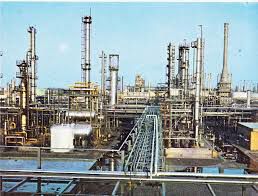1948: THE BRITISH LABOUR GOVERNMENT AND THE COMING OF THE ANGLO-IRANIAN OIL COMPANY’S CRISIS
Herbert Morrison, the Foreign Secretary, knew that the British public would be outraged by any display of apparent weakness in the face of Iranian high-handedness, and that this would adversely affect the Labour Party’s election prospects. The Foreign Secretary informed the Cabinet that ‘all practicable steps would be taken to prevent the Company’s customers from buying oil from the Persian Government,’ ‘as evidence that United Kingdom interests could not be recklessly molested with impunity. Indeed, failure to exhibit firmness in this matter any prejudice our interests throughout the Middle East.’38 For example, ‘any admission of the principle of the nationalisation would be quickly exploited elsewhere in the Middle East: the Egyptian Government in particular, would be glad to seize this pretext for actions prejudicial to British interests,’39 went on Herbert Morrison.
As far as Clement Attlee, the Labour Prime Minister, was concerned, ‘Persian oil’ was an election issue. To preside over the Cabinet meeting, Attlee broke away from the Scottish Labour Conference and flew to London. Contrary to Morrison the Foreign Secretary, who took a hawkish approach and favoured military intervention in Iran, Attlee estimated that military intervention might strengthen nationalist feeling in Iran and consequently Dr. Musaddiq’s position as a prime Minister who could stand up to western imperialism. Furthermore, Attlee was of the opinion that, if the Iranians by their own mismanagement were to reduce the oil industry to chaos, then they might eventually recognise the desirability of British co-operation. Attlee was not especially sanguine about that prospect, but he held it to be the best that the British faced. He put these views forward with great force:
An occupation of Abadan island would not necessarily bring about a change in Persian Government and might well unite the Persian people against this country, and neither the oil wells nor the refinery could be worked without the assistance of Persian workers… It would be humiliating to this country if the remaining to this country if the remaining British staff at Abadan were expelled, but this step would at least leave Dr. Musaddiq with the task of attempting to run the oil industry with inadequate facilities for refining oil and getting it away from Persia and he might then be driven to accept some form of agreement with this country.40
When Attlee used the word ‘humility’ he no doubt had in mind the British public and the impending general election. Financially, the British Government was under constraint to act generously, there was also too much pressure and goings on in the press and Parliament to act rationally. The Iranian oil crisis became a very serious issue. In the eyes of the British public, ‘a British possession had been stolen.’41 In the October 1951 General Election the Conservative Party came to power, headed by Churchill. The Tories blamed the Labour Government for being shamefully weak in dealing with the Iranians. ‘If a strong Conservative Government had been in power the Persian crisis would never arisen in the way it did,’42 said Churchill. ‘No intelligent government would have got into the position in which the government got itself,’43 added Anthony Eden. The New Statesman retorted:
If Mr. Churchill had been in power, and as bad as his word, we should have wasted our resources, our manpower and our credit on a war [in India and Asia generally] even more terrible, wrong and useless than the French struggle in Vietnam. India, like Vietnam, would now be in the hands of our bitter enemies; Indian nationalism, like that of Vietnam, would by now have turned into Communism.44
‘Whose finger is on the trigger?45 responded the Daily Mirror. The Labour manifesto for the 1951 election said, ‘the Tory still thinks in terms of Victorian Imperialism.’46 The Labour leader, Clement Attlee, had already been, even before the Second World War, speaking of Labour’s commitment to the ‘abandonment of imperialism’.
- PRO, London, CAB 128/19 CM (51) 37th Conclusions, Minute 3, 5th July 1951, p. 96.
- PRO, London, CAB 129/46 CP (51) 212, Memorandum by Herbert Morrison on Persia, Secret, 28th July 1951, p. 1.
- PRO, London, CAB 128/19, CM (51) 37th Conclusions, Minute 3, 5th July 1951, p. 33.
- PRO, London, CAB 128/20, CM 60 (51), Conclusion, Minutes, 27th September 1951.
- B. LAPPING, op. cit., p. 264
- L.P. ELWELL-SUTTON, Persian Oil: A Study in Power Politics, (London: Lawrence and Wishart Ltd., 1955), p. 258.
- Ibid.
- The New Statesman, 13th October 1951, in W.R LOUIS, The British Empire in the Middle East, 1945-1951, (Oxford: Oxford University Press, p. 738.
- .The Daily Mirror, (no date given), in ibid.
- Ibid.



